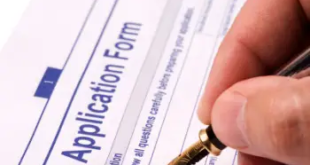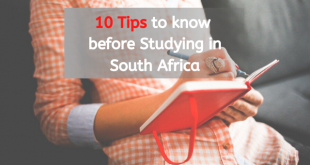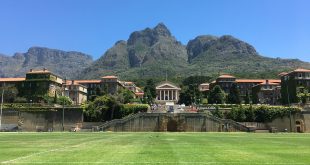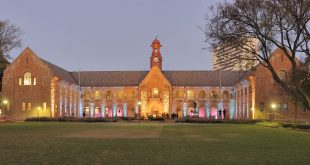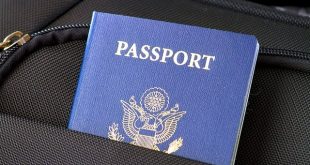South Africa is the most popular study destination in the continent, having the highest-ranking universities. If you are an international student and want to know the cost of studying and living in South Africa, here you are some valuable information.
Table of Contents
Cost of Studying in South Africa
Tuition fees in South Africa vary according to the course/program and institution. You can expect to pay the following:
University studies: between RS20,000 and RS30,000 annually.
Medical degrees: RS95,000 to 100,000, a minimum of RS70,000 as standard tuition fees.
This is in addition to RS35,000 as the international students’ fees. The fees reach around a minimum total of RS110,000 for the bachelor student and RS94,000 for the masters.
Application Fees
Most of the universities impose non-refundable application fees of RS100-RS500.
Please note that paying the application fees does not mean that your application will be accepted.
Some institutions, such as Nelson Mandela Metropolitan, offer free applications for both online and manual (paper-based) submissions.
Other institutions, like the University of Johannesburg, offer free online applications but charge a fee of RS200 for manual applications.
Registration Fees
Some universities request specific registration fees.
For example, the University of Rhodes requests around 10% of the tuition fees and 10% of the accommodation fees.
The good news is that this is usually a down payment on your total tuition fees, which means that it will be deducted from your tuition bill for the rest of the year.
Check our article about the top 6 universities in South Africa.
Deadlines
Always check the registration deadline.
Often, the institutions impose non-refundable late registration fees of around RS680 and RS2,250 if you miss the deadline
Discounts
Many universities, either public or private, offer discounts if you paid your tuition fees in advance.
Costs of Living in South Africa for International Students
Students living expenses in South Africa is lower than most of the advanced countries, so you do not have to worry if you are planning to study in the country.
The urban areas are very expensive, while the other areas are lower in cost. The general costs of living range between RS24,000 and RS32,000 per year.
The following are some prices of the basic groceries:
- Milk: RS10
- Bread (500g): RS9.38
- A dozen eggs: RS18
- Chicken (1 kg): RS48
- Rice (1 kg): RS16
Accommodation and Main Utilities
When making living arrangements in South Africa, you’ll have two main choices:
- University housing: which will cost you between RS3000-5000 per month, depending on the university you apply to and the type of room you rent. South African universities offer accommodation to their students.
- Renting a private apartment: costs between RS6,000 and RS14,000 per month, depending on the apartment location and its proximity to the city downtown. You can also share a bigger apartment with other students.
The monthly bill of electricity and water is around RS650-RS1,500
Books and Equipment
The cost of books, stationery, and educational equipment depends on what you study and where.
The University of Cape Town estimates RS6,000 for books and RS3,000 for equipment.
Your equipment can cost more if you are studying art, for instance, or if you study at a private institution.
Health Insurance
Student health insurance is obligatory. Its cost may vary depending on the type of medical insurance, the included benefits as well as the duration of your stay in South Africa.
The average cost is RS125 per month. You can contact the International Education Association of South Africa (IEASA) to learn about the health insurance plans and their benefits for the international students.
Moreover, students must undergo a medical examination while applying for a study permit.
Transport
To get around in South Africa you have the choice between 3 types of transport: train, bus and taxi. Traveling by train or bus is the best option, as South Africa has a wide and well-maintained infrastructure.
You can also subscribe to a transport pass that will cost you around RS685 par month. Taxi rides fee starts at RS19.5 (1 EUR), then you pay RS11.7 per kilometer.
In big cities like Johannesburg or Capetown, you can enjoy commuters as your option of travelling. Lastly, if you decide to invest in a scooter or a car, the gasoline will cost you RS10-RS12/liter, which can be worthwhile if you want to travel longer distances or visit other cities.
Funding your living cost while studying in South Africa
Studying and living in a foreign country, you have 2 options to cover your living expenses.
Working part-time while studying
International students can get a permit allowing them to work for up to 20 hours a week. Doctorate students are required to perform a practical work at their university or a related organization as part of their thesis or research study.
For that, they need to submit to the South African embassy of their country of origin an application form for a work permit. Along with it, they need to provide a formal offer from the organization they intend to work in, a consent letter from the university and the proof they are a registered student.
Scholarships and grants
The other option is to apply for a scholarship or a financial aid that the university you are enrolled in provides. This possibility of funding, although rare, is possible. Do not hesitate then to check out the official website of your university or check out an online database of scholarships and grants for students who want to study in South Africa.
This was our article about the costs of studying and living in South Africa, see you in our next article.
Check our article about how to get study visa in South Africa.




 Aljawaz Your guide to study abroad
Aljawaz Your guide to study abroad
